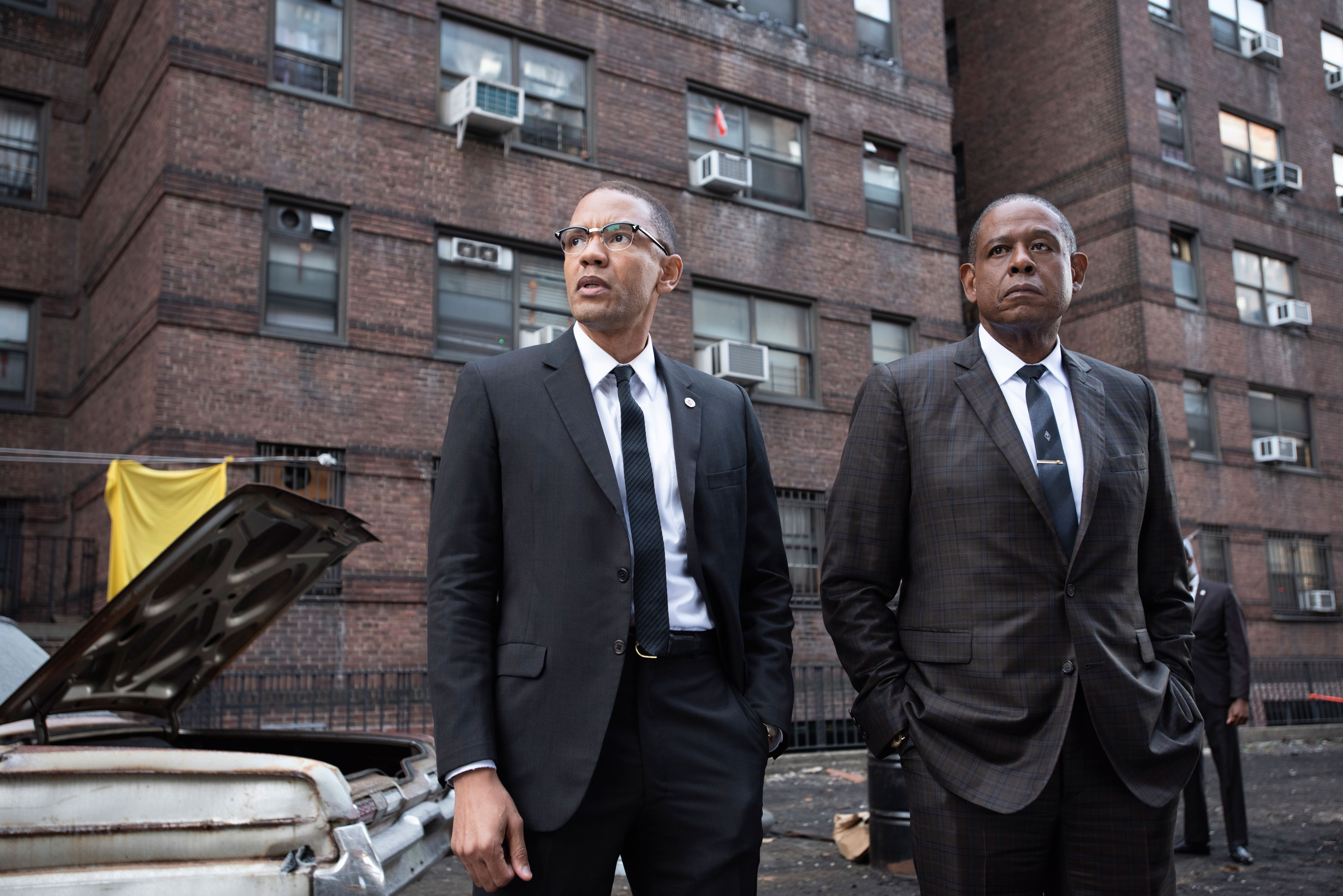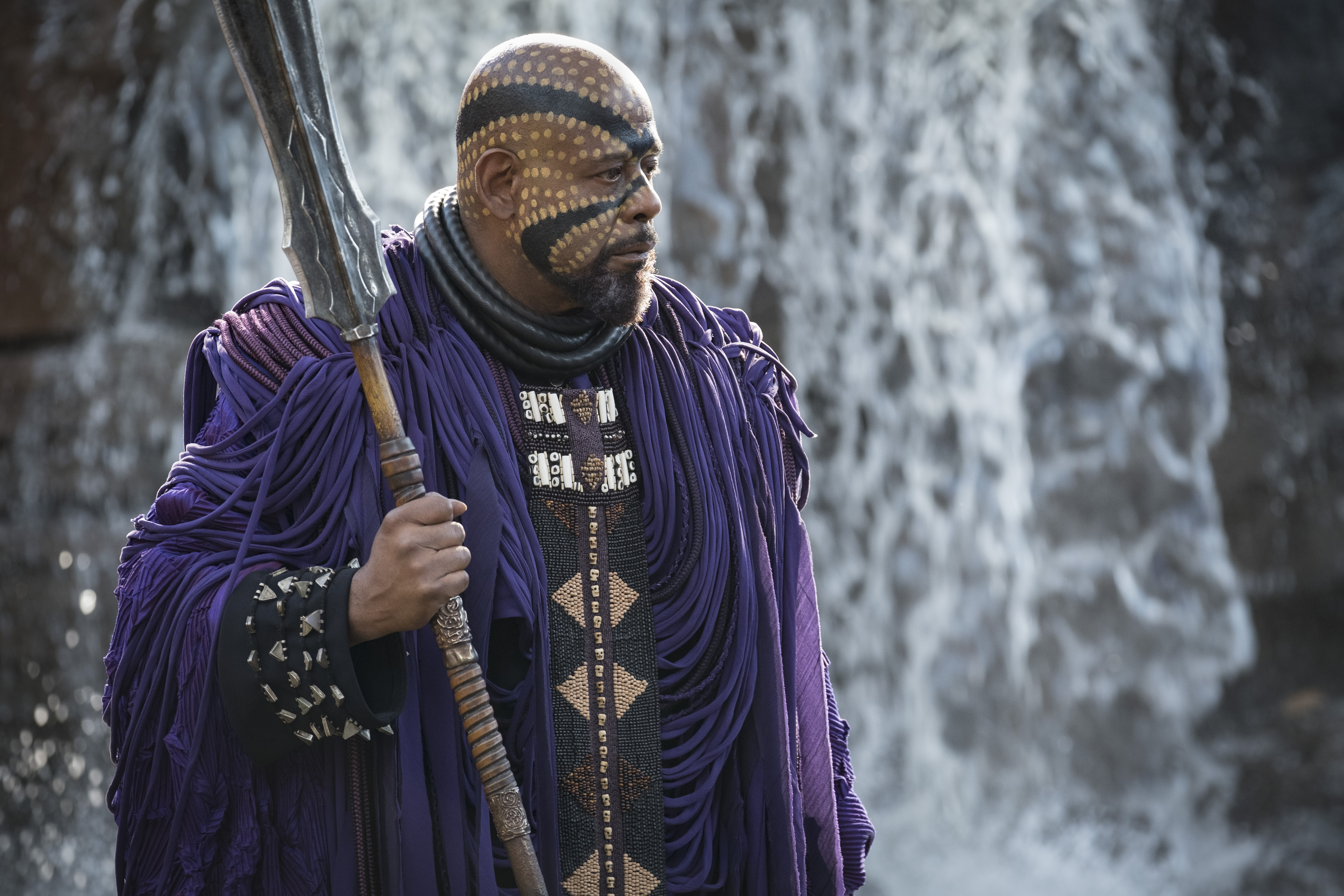A ‘Godfather’ of Storytelling
The smarter way to stay on top of the multichannel video marketplace. Sign up below.
You are now subscribed
Your newsletter sign-up was successful
When the cast and crew of the film Black Panther took the stage last month to celebrate its Screen Actors Guild Awards win for Outstanding Performance by a Cast in a Motion Picture, Forest Whitaker was not part of the celebration. Yet anyone who has seen the film, nominated for a Best Picture Oscar, knows how large his presence looms in the role of Zuri, elder statesman and mentor to the superhero himself, King T’Challa.

In fact, Whitaker’s influence and presence can be felt, if not seen, across the entertainment spectrum. On the big screen, Whitaker has appeared in more than 70 movies over a 35-plus-year career, culminating with an Oscar for Best Actor in a Leading Role for his performance as dictator Idi Amin in 2006’s The Last King of Scotland.
On television, Whitaker has performed in memorable guest star and recurring roles in such shows as Hill Street Blues, Diff ’rent Strokes, ER, The Shield, Roots and Empire. He won an Emmy Award as executive producer of the 2002 TNT television film Door to Door.
Behind the camera, Whitaker — through his Significant Productions studio — has been successful in telling unique and diverse stories that the major studios have ignored. He produced the 2013 film Fruitvale Station, about the fatal shooting of Oscar Grant III by Bay Area Rapid Transit police officers in 2009, which won a 2014 Independent Spirit Award.
Whitaker’s latest project, the Epix drama Godfather of Harlem, explores the life of Harlem crime boss Bumpy Johnson. He’s the leading man and executive producer of the series, which will debut this fall, co-starring Giancarlo Esposito and Lucy Fry, among others.
“Forest is a world-class actor, and his performance as Bumpy anchors the entire show,” Epix president Michael Wright said. “He is one of the most gifted actors I’ve ever seen, and he’s crafting a complex, engaging, riveting character in this series. Also, his work as an executive producer on the show is equally important.”
Multichannel News caught up with Whitaker on the Brooklyn set of Godfather of Harlem to talk about the series, his illustrious career and his thoughts on the industry and the current state of TV’s diversity efforts, both on and off-screen. Here’s an edited transcript of that conversation.
The smarter way to stay on top of the multichannel video marketplace. Sign up below.
MCN: You’ve worked in the entertainment business on virtually all sides for more than three decades. Is the industry today providing enough opportunities for diverse stories to be told across various platforms?
Forest Whitaker: I think there is an opportunity at the moment for all cultures, and people of color certainly, to be able to have an opportunity to have their voices heard. I think there is a consciousness rising among the youth in particular that makes them open to different types of stories. I also think there’s economic opportunity that particularly the digital distributors are looking towards that is inclusive of the whole planet.
MCN: Having said that, how important is it to you to be involved in projects that are not only inclusive but also feature stories that aren’t told elsewhere?
FW: I’ve been fortunate to do stories like that. I directed a film years ago called Waiting to Exhale that also became a cultural moment, where people were discussing what was in the film on a smaller level than obviously Black Panther. But these projects are very important to me. I want to make sure the new, young voices are getting exposure because most of the stuff I produce is with first-time filmmakers. I want to give them the opportunity to tell stories. The goal is to develop stories that will help bring a sense of thriving and to deepen the understanding of what people are going through to survive. Trying to understand what it means to survive and to have opportunity inside of this country is very complicated, so I want to continue to keep telling stories that paint a deeper palette into this tapestry that people think they understand without really looking at the threads. If you look at a painting, you’re looking at the paint; you don’t really look at the canvas or what else is underneath. Sometimes you see different types of textures or a different kind of canvas that it could be if you look close enough.
MCN: What was it that attracted you to Epix’s Godfather of Harlem?
FW: I think it’s really interesting that the movie converges on a time when the civil rights movement, the criminal world and politics all come together at once. This whole notion of what we need to do to be able to achieve the American dream and trying to reach for it is a really interesting concept to me. I think every character in their own community as the Irish were, the Latino community and us in the African-American community came together in a way that I think allows us to tell some stories about how we strive — and then hopefully be able to figure out a way to thrive — inside an environment that has its pressures to survive. One of the other interesting things is that the series acts as the backside to the mirror of what’s happening today in our country with the whole issue of profiling, violence and rights — so many movements are going on right now to fight against that. The film also deals with something else going on in the country, and that’s the opioid crisis. The nation itself is responsible for the psychology of its people; the lack of opportunity and all those kinds of things that perpetuate the opioid problem. It seemed like the right idea at the right time, so we went out and got [series writer] Chris [Brancato] to develop the idea and here we are.
MCN: Does this story have real relevance to a younger generation that might not know about Bumpy Johnson or 1960s Harlem?
FW: I think there are issues raised that are still relevant today. When you see the marches we have today, you realize you’re walking in history right at this moment. Those protests are the mirrors of what was going on then: the same issues, the same problems, the same alienation. The civil rights movement looked to move the tides and gave people a way to fight back against being suppressed, and we’re seeing that now whether it’s the #MeToo movement, the Black Lives Matter movement, whatever those movements are, it’s about people who are subjugated and put down and who are now fighting against it. This show deals with that; you see the youth rising up. It also has gangsters — you have black gangsters, Latin gangsters, Italian gangsters, Chinese gangsters — and how those things were crossing and pollinating each other.

MCN: Beyond acting, you have your own studio in Significant Productions. What are you looking to accomplish behind the camera?
FW: As a company, we have done different kinds of films. When we did Roxanne Roxanne for Netflix, that was talked about by [Netflix chief content officer] Ted Sarandos as one of the most successful projects they’ve had. There’s been a success for us as a company from the very beginning with Fruitvale Station — which garnered an audience that made it financially and critically successful — because these are stories that people want and need to hear. Our last movie was Sorry to Bother You and we did a movie which I thought was really beautiful in Songs My Brother Taught Me, which is a Native American film. We have an Angela Davis project coming up and ideally we want to do one to two films a year.
MCN: I would be remiss if I didn’t ask about Black Panther. Were you surprised by the success of that film?
FW: I thought Black Panther was going to be a massive success initially, but I can’t say that I had the understanding of the cultural relevance it would have and how it penetrated society. I believed in [Black Panther director] Ryan Coogler, I believed in the story, and I believed that people wanted to see a story like that. The way that it’s helped people formulate more of their identity and their own strength and sense of pride, and the way it’s been used as a cultural icon across this country and across Africa is a touchtone, and I don’t think that could have been anticipated. I’ve always known that some films would be able shift people’s consciousness, and I think that [Black Panther] is part of that. I’m proud to be involved in it and I think it’s a maniacally important film.
R. Thomas Umstead serves as senior content producer, programming for Multichannel News, Broadcasting + Cable and Next TV. During his more than 30-year career as a print and online journalist, Umstead has written articles on a variety of subjects ranging from TV technology, marketing and sports production to content distribution and development. He has provided expert commentary on television issues and trends for such TV, print, radio and streaming outlets as Fox News, CNBC, the Today show, USA Today, The New York Times and National Public Radio. Umstead has also filmed, produced and edited more than 100 original video interviews, profiles and news reports featuring key cable television executives as well as entertainers and celebrity personalities.

